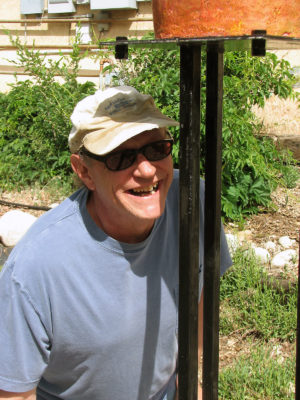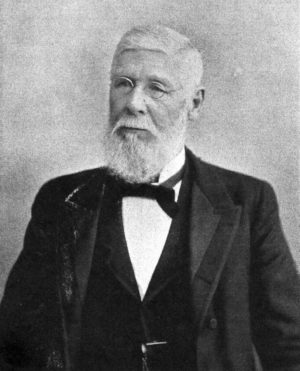By Martha Quillen
I’m in the midst of an enormous overhaul, emptying closets, file cabinets, book cases and drawers, combing through years of detritus, and getting ready to revamp my life. Where am I going? What am I going to do? I don’t have time to contemplate that. I have forty years of mementos to sort and a shed to clean. And I need to get it done ASAP.
I got fired from the library last month. For me, the end began two months earlier during my year-end evaluation, when the library director accused me of being forgetful, confused and having deteriorated over the past year. I was stunned, because I thought I was doing a great job.
Then the director referred to my “well-being,” and asked straight out if there was something wrong with me. I shook my head and said no, but she concluded, “Everybody is worried about you and they love you.”
And I knew I was in serious trouble. In my experience people have a tendency to accompany grim news with overblown assurances – and things are really bad when someone says everyone loves you.
Anyway, in the weeks following my evaluation, the director had someone canvass books in the annex and she concluded I had put seven young adult books in the wrong place. She also said a staff member had once seen me put two books in the wrong place upstairs. In my defense, I ordinarily put away at least a hundred items a day, four days a week, so my error rate was low.
Over the years, the library staff has mounted several internecine shelving disputes, but I had never been the focus of one before, and it was scary. Bad shelving is generally the first charge you hear against teenage workers who spend a lot of time on Facebook. But the obvious truth is that everyone who shelves occasionally makes mistakes.
So does that mean more people should be fired? Of course not. As far as I’m concerned the Salida Regional Library staff is friendly and helpful. They really love their library, put patrons first, and are incredibly generous about dropping everything and rushing in on their days off if they’re needed.
[InContentAdTwo] But workplace relations are professional, not personal, and workers are valued for their marketable assets (which, if we are being totally honest, include youth, good looks, fitness, stamina, verve and a sense of style) and not their humanity. My assets were apparently questionable, but I wasn’t originally fired; I was offered a twelve-hour a week position to replace my old twenty-eight hour a week job. The new job entailed in-house and out-of-house hours, driving and expenses, would require unpaid research on my part, a written proposal, and was only available on a three-month probationary basis.
I submitted a preliminary proposal for it, and said I wanted to bring a friend to the meeting to help me sort out what was being offered. But the director told me her “councel” said she didn’t have to let me bring someone to a “scheduling” meeting. And I wasn’t going alone.
Whenever I’d met with her before, she’d left me feeling totally unheard. So I figured if I attended that meeting by myself, I’d end up with a temporary job that required forty hours of work a week, and paid for twelve – if I was lucky.
So I was fired – several times, actually. And in the weeks afterwards, I read a lot about work and workplaces, and decided that modern America’s work culture may be making us crazy. Today, the workplace is where American adults spend the majority of their waking hours – even when they’re getting a divorce, caring for a dying parent or expecting a baby. The rest of people’s time is divided between sleeping, commuting, shopping, cooking, cleaning, socializing, running errands and chauffeuring kids.
Spending so little quality time with family doesn’t strike me as healthy, but very little about current American culture does. We live in difficult times. Seventy percent of Americans report being unhappy at work, according to a Gallup poll. Toxic workplaces abound; mean rhetoric prevails; our politics are unsavory, our manners questionable; and cruel words, actions and stereotypes are so standard, people only notice them if they’re aimed their way.
In 1997, Nicolaus Mills’ book, The Triumph of Meanness: America’s War Against its Better Self described a purported culture of meanness in the United States, which is a concept that has been gaining ground ever since, and is currently featured on hundreds of thousands of websites.
In 2016, Canadian blogger Ian Welch posted a modern take on this issue, “One of the most striking things about much of American culture is the simple meanness of it,” he contended. And he elaborated: “In American culture, the weak are the preferred target. Failure is punishable by homelessness, suffering and death. Sick people sure don’t deserve proper pain medication. Poor people are poor because they ‘don’t add value.’ If you’re poor, you definitely shouldn’t have good healthcare, because if you don’t have money, you don’t deserve money, and that’s because you’re a waste of space.”
Welch is right about American culture. It is full of people and groups who think they should get to decide who’s worthy and who’s not, who can stay and who can’t, and who can speak and who shouldn’t. That’s just wrong, and it doesn’t matter whether Donald Trump is doing it. Or Salidans are wrangling about whether old-timers or newcomers should matter most. It’s hierarchical, tyrannical and totally un-American to think citizens should get to pick and choose which Americans really count.
I loved the library. I relied on it to pay for my home and food. I loved hearing about people’s favorite movies and books, and loved helping them find new favorites. At the library, I met new people and saw old friends. But near the end, it was making me sick. I felt constantly scrutinized, and was so worried about my finances and future, I didn’t sleep more than a few hours a night. I lost twelve pounds, and was chronically tired.
Unfortunately, my experiences at work are all too common for people sharing my demographic. People my age are not prime corporate picks. In fact, I haven’t talked to any employed women over sixty-five who haven’t been privy to uncomfortable references about their age, energy level, multi-tasking skills, health, physical fitness, judgment or appearance. During the 2016 campaign, Donald Trump actually attacked Hillary Clinton on those grounds (even though Trump is older).
When I got fired, a lot of people thought I should hire a lawyer, but I didn’t want to sue the library. It’s an important community resource staffed by some very good people. But there were irregularities in my treatment: I was questioned about my well-being; singled out for surveillance; not given an opportunity to correct any problems; and channeled toward an alternative job with far fewer hours.
I didn’t want anyone else to experience what I did. So I prepared and read a complaint to the library board, because it occurred to me that I – and people like me – may be encouraging harmful treatment with our silence. And even though it’s embarrassing to be deemed unsatisfactory, I think more people need to tell their stories and take a stand against common inequities.
Because sometimes you have to remind the powerful that you are there. They may kick you for it, but they are already doing that. And if you don’t speak up? They will never even notice they stepped on you.
People say you can’t change the world. But one of the things psychologists frequently conclude about meanness is that it’s contagious. And in that case kindness and understanding are likely contagious, too. So, no, you can’t change the world alone. But we can change it.
Martha Quillen is grateful to all the people who supported and encouraged her, spoke for her, and convinced her that airing unpleasant experiences can be important and liberating.


